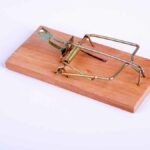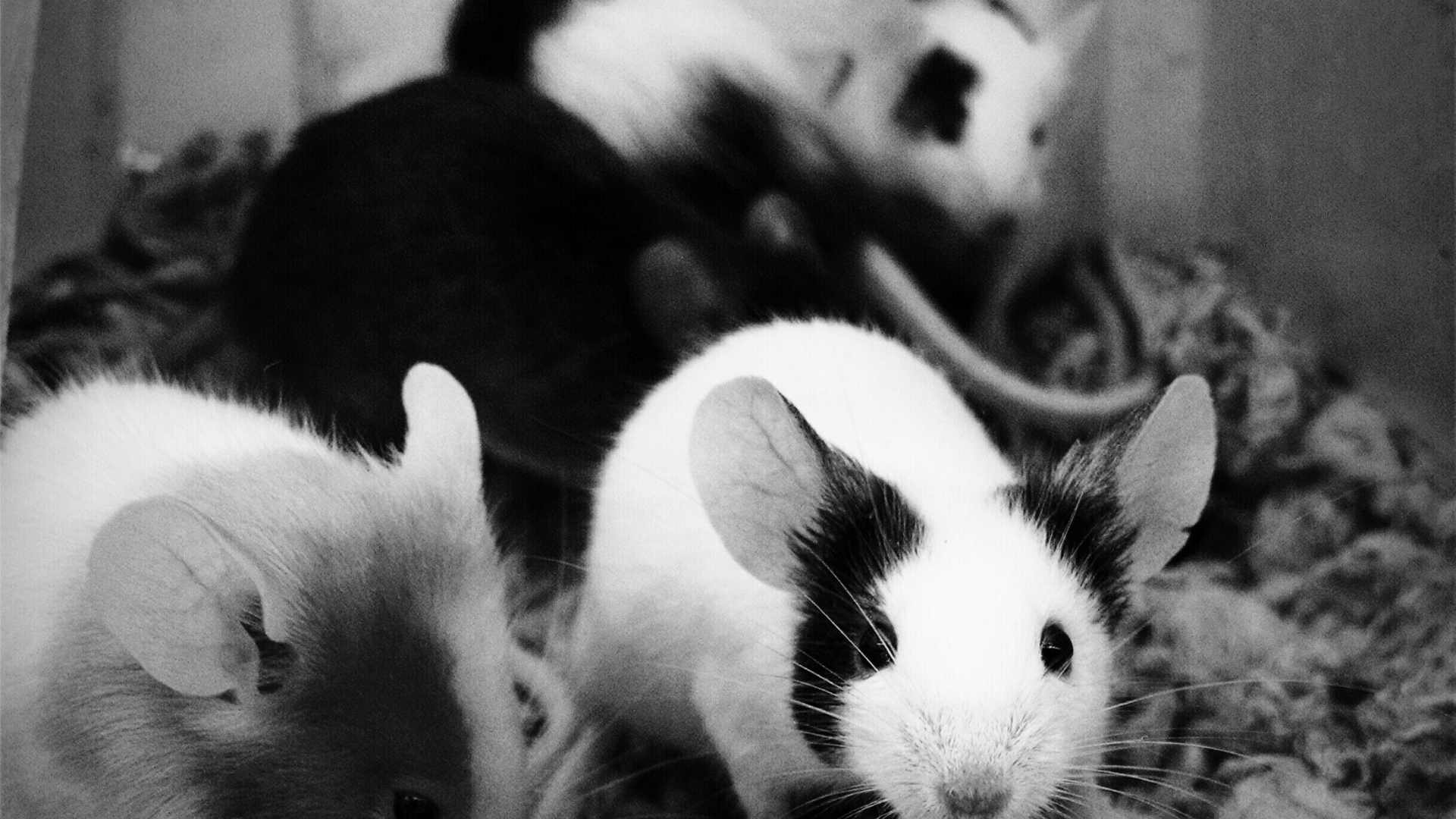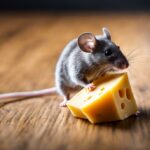Are you tired of finding mice in your home?
Do you wonder what attracts them to your property?
Mice are common pests that can cause severe damage to your home and health. It is essential to understand what attracts mice to your home so that you can take the necessary measures to prevent them from entering your property.
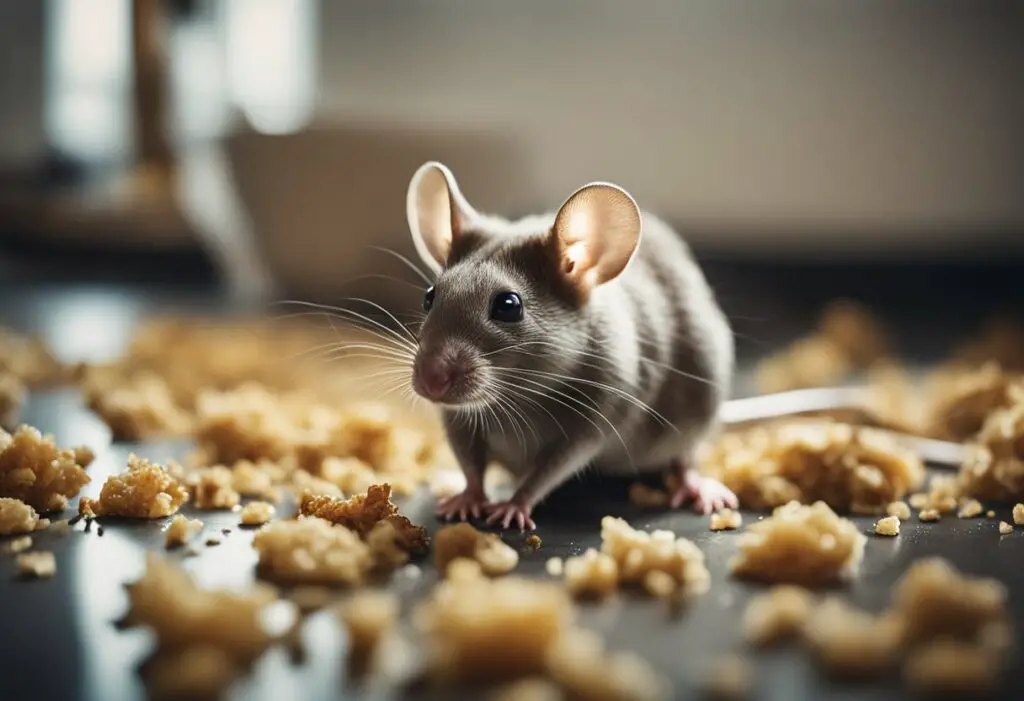
Mice are attracted to warmth, food, and shelter. They can easily enter your home through small openings, such as gaps in walls, windows, and doors. Once they enter your property, they can cause significant damage by chewing through wires, insulation, and drywall. Moreover, mice can carry harmful diseases that can affect your health and well-being. Therefore, it is crucial to identify the factors that attract mice to your property and take necessary measures to prevent them from entering your home.
In this article, we will discuss the common factors that attract mice to your home. We will also provide you with some tips to prevent mice from entering your property. By following these tips, you can keep your home safe and healthy and prevent mice from causing damage to your property.
What Attracts Mice to Homes
Mice are common household pests that can cause damage to your property and pose a health risk to you and your family. Understanding what attracts mice to your home can help you prevent an infestation. Here are some factors that may attract mice to your home:
Food Sources
Mice are attracted to easily accessible food sources. They can feed on a variety of foods, including grains, seeds, nuts, fruits, and vegetables. They can also feed on pet food and human food that is left out in the open. To prevent mice from being attracted to your home, store food in airtight containers and clean up food spills and crumbs promptly.
Shelter and Warmth
Mice are attracted to warm and cozy places to build their nests. They can squeeze through small openings and cracks to gain access to your home. Once inside, they may build their nests in attics, basements, and wall voids. To prevent mice from entering your home, seal any openings or cracks in your home’s foundation, walls, and roof. Keep your home clean and free of clutter, as mice are attracted to nesting materials such as paper, fabric, and cardboard.
Water Supply
Mice need water to survive, and they are attracted to homes with a readily available water supply. They can obtain water from leaky pipes, standing water, and even condensation on pipes. To prevent mice from being attracted to your home, fix any leaky pipes and ensure that your home is properly ventilated to prevent condensation.
In summary, mice are attracted to homes that provide easy access to food, shelter, warmth, and water. By taking steps to eliminate these attractants, you can prevent mice from entering your home and causing damage.
Common Food Items That Attract Mice
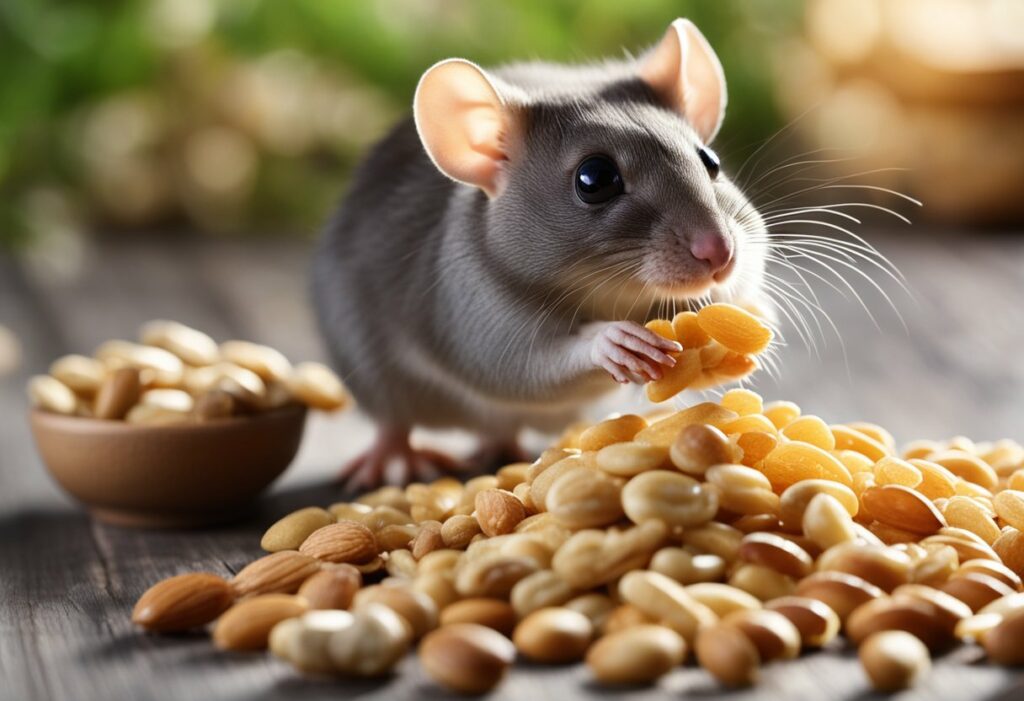
Mice are attracted to a variety of food items that are commonly found in households. It is important to know what these items are so that you can take steps to prevent mice from entering your home. In this section, we will discuss some of the most common food items that attract mice.
Household Foods and Ingredients
Mice are attracted to easily accessible food items, such as crumbs, cereals, and chocolate. They are also attracted to food items that are high in protein and fat, such as meat, bacon, and sweet treats. Peanut butter and cheese are also popular food items that attract mice. It is important to keep these food items stored in airtight containers so that mice cannot access them.
Pet Food and Bird Seed
Mice are also attracted to pet food and bird seed. These items are often left out in the open and are easy for mice to access. It is important to keep pet food and bird seed stored in airtight containers and to clean up any spills or messes promptly.
Seeds and grains are also popular food items that attract mice. They are attracted to sunflower seeds, corn, cereal, oats, and berries. Fruit jam is another food item that mice are attracted to. It is important to clean up any spills or messes promptly and to keep these food items stored in airtight containers.
In summary, mice are attracted to a variety of food items that are commonly found in households. It is important to keep these food items stored in airtight containers and to clean up any spills or messes promptly. By taking these steps, you can help prevent mice from entering your home.
Mice Habitats and Entry Points
Mice are attracted to areas that provide them with shelter, food, and water. They can enter homes and buildings through various entry points, including cracks, holes, gaps, pipes, and wires. Once inside, they will seek out areas to nest and breed.
Indoor Nesting Areas
Indoor nesting areas for mice include cluttered areas, boxes, cardboard, attics, basements, and insulation. Mice will also use nesting materials like shredded paper or fabric to build their nests. It is important to keep these areas clean and organized to prevent mice from nesting.
Mice can also enter homes through drain pipes and gaps around plumbing or venting systems. Airtight containers are recommended for storing food to prevent mice from accessing it. Regularly emptying indoor garbage cans and keeping trash in a closed outdoor receptacle can also help prevent mice from accessing food debris or residue.
Outdoor Attractants
Outdoor attractants for mice include debris, weeds, tall grasses, and piles of leaves. Mice will also seek out areas around bushes, trees, and the lawn. It is important to keep outdoor areas clean and well-maintained to prevent mice from nesting.
Entry points for mice outdoors include gaps in walls or doors, as well as entry points around pipes, wires, and other openings. It is important to seal these entry points to prevent mice from entering your home or building.
By understanding what mice are attracted to and how they enter homes and buildings, you can take steps to prevent them from becoming a problem. Keeping your indoor and outdoor areas clean and well-maintained, as well as sealing entry points, can help keep mice away.
Preventing and Controlling Mice Infestations
Mice infestations can be prevented and controlled by taking a few simple steps. Sanitation and maintenance, sealing entry points, and using mice traps and baiting are effective methods to prevent and control mice infestations.
Sanitation and Maintenance
Good sanitation and maintenance practices are essential to prevent mice infestations. Keep your home clean and free of clutter. Wipe down surfaces and floors regularly to remove food crumbs and spills. Store food in airtight containers and keep pet food in sealed containers. Remove garbage from your home regularly and keep garbage cans clean and tightly sealed.
Sealing Entry Points
Sealing entry points is an effective way to prevent mice from entering your home. Inspect your home for cracks, gaps, and holes that mice can use to enter your home. Seal these gaps with caulk, steel wool, or other materials that mice cannot chew through. Pay close attention to areas around pipes, vents, and electrical wires, as these are common entry points for mice.
Mice Traps and Baiting
Mice traps and baiting are effective methods to control mice infestations. Snap traps, glue traps, and bait stations are commonly used to trap and kill mice. Poison baits are also available, but they can be dangerous to pets and children if not used properly. Always follow the manufacturer’s instructions when using traps and baits.
Look for signs of mice activity, such as droppings, gnaw marks, and urine stains. Place traps and bait stations in areas where mice are active. Check traps and bait stations regularly and dispose of dead mice promptly.
Remember that mice can carry diseases, so it is important to take steps to prevent and control mice infestations. By following these simple steps, you can keep your home free of pests and protect your family’s health.
Understanding Mice Behavior
Mice are fascinating creatures that have unique behavior patterns. Understanding their behavior is key to preventing mouse infestations in your home. In this section, we will explore the feeding habits, breeding, and population growth of mice.
Feeding Habits
Mice are primarily attracted to food sources. They are omnivorous and will eat almost anything, including seeds, grains, fruits, and vegetables. They are also attracted to high-calorie foods such as nuts, peanut butter, and cheese. Mice are known to eat up to 15% of their body weight in food each day, which means they can quickly deplete your pantry and food storage areas.
To prevent mice from being attracted to your food, make sure to store it in airtight containers. Clean up any food spills or crumbs immediately, and regularly remove trash from your home.
Breeding and Population Growth
Mice breed quickly and can have up to 10 litters per year, with each litter containing up to 12 offspring. This means that a single pair of mice can quickly turn into a mouse infestation in your home.
To prevent mice from breeding and growing their population, make sure to seal any entry points to your home, such as cracks in walls, doors, and windows. Keep your home clean and free of clutter, which can provide hiding places for mice.
In addition to food and shelter, mice are also attracted to areas with few predators and plenty of insects and other rodents. If you have a lot of insects or other rodents in your home, it could be attracting mice. To prevent this, make sure to keep your home clean and free of pests.
By understanding the behavior of mice and what attracts them, you can take preventative measures to keep them out of your home.



